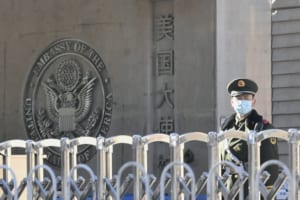What is ESTA? Short for “The Electronic System for Travel Authorization” (“ESTA”) Visa Waiver Program is a program of the United States government to facilitate visa-free travel for eligible citizens from participating countries. Launched in 2009, ESTA streamlines the process for visitors entering the U.S. for purposes of pleasure, tourism, or business, provided their stay does not exceed 90 days. Citizens from eligible countries do not have to apply for a visa to enter the U.S. but instead complete an online application form and pay a small fee to seek approval. Upon approval, they may travel to the U.S. and request entry for up to 90 days.
Entry Purposes: Pleasure, Tourism, and Business
- Entry for Pleasure and Tourism: Travelers visiting the U.S. under the ESTA program typically engage in activities such as sightseeing, visiting friends or relatives, recreational activities, medical treatment (under certain conditions), and participating in social events organized by fraternal, social, or service organizations.
- Entry for Business: Business activities permitted under ESTA include attending conferences, meetings, or negotiations, conducting independent research, attending seminars and workshops, participating in short-term training, and other activities directly related to their business or profession. Temporary entries for business to handle executive level activities of a U.S. company may be allowed, but great care must be taken to avoid activities that might be deemed employment.
Allowed and Prohibited Business Activities
Allowed Activities:
- Business meetings: Including consultations with business associates.
- Conferences and seminars: Attending these events relevant to one’s business or profession.
- Negotiations: Engaging in commercial transactions that do not involve gainful employment in the United States.
- Research and training: Undertaking independent research or participating in short-term training.
Prohibited Activities:
- Employment: Any form of gainful employment or work in the U.S. is strictly prohibited under ESTA.
- Long-term business assignments: Activities that require a prolonged stay or involve establishing a permanent presence to conduct business are not allowed.
Duration of Stay and Extension
Visitors entering the United States under the ESTA program may be granted a period of stay for up to 90 days. This timeframe is typically sufficient for tourism, short-term business activities, or a combination of both. It’s important to note that the 90-day limit is usually not extendable, and visitors must leave the U.S. before this period expires.
Changing or Adjusting Status
Changing or adjusting a visa status, such as transitioning from visitor to student or worker, or to an immigrant visa category, while in the U.S. under ESTA is not permissible. Visitors must exit the U.S. before their authorized stay expires if they wish to apply for a different visa status, such as a work visa, student visa, or an immigrant visa category.
What Countries in Asia Qualify for ESTA?
The countries in the Asia-Pacific area whose citizens qualify for the ESTA are:
- Japan
- South Korea
- Taiwan
- Brunei
- Singapore
- Australia
- New Zealand
The ESTA program serves as a convenient pathway for citizens of participating countries to travel to the United States for short-term purposes of pleasure, tourism, or certain business activities. Understanding the allowed and prohibited activities under ESTA is crucial to ensure compliance with U.S. immigration laws. For longer stays or different purposes, individuals may need to explore other visa options.
If you have question about ESTA or other visas to the U.S.
ENTERLINE & PARTNERS CONSULTING
Ho Chi Minh City, Vietnam Office
146C7 Nguyen Van Huong St, Thao Dien Ward,
District 2, Thu Duc City
Ho Chi Minh City, Vietnam
Tel: +84 933 301 488
Email: info@enterlinepartners.com
Facebook: Enterline & Partners – Dịch vụ Thị thực và Định cư Hoa Kỳ
YouTube: @EnterlineAndPartnersConsulting
Website: http://enterlinepartners.com
Manila, Philippines Office
Tel: +63 917 543 7926
Email: info@enterlinepartners.com
Facebook: Enterline and Partners Philippines
Website: https://enterlinepartners.com/language/en/welcome/
Copyright 2024. This article is for information purposes only and does not constitute legal advice. This article may be changed with or without notice. The opinions expressed in this article are those of Enterline and Partners only.








